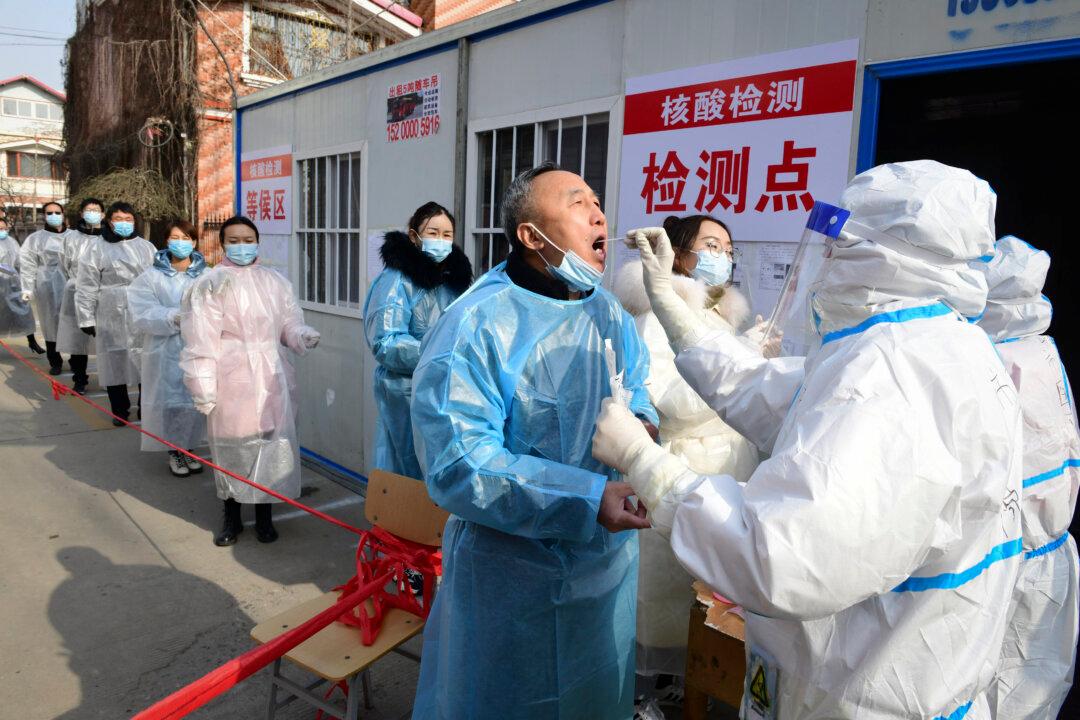The Chinese regime claimed there were no new domestic CCP (Chinese Communist Party) virus infections in the country on Feb. 21, and that only one region, Wangkui county in Heilongjiang Province, would be a medium-risk region to contract the virus.
But people in Hebei and Jilin provinces told the Chinese-language Epoch Times in phone interviews that they’ve been locked down at home since early January, calling the official narrative into question.





